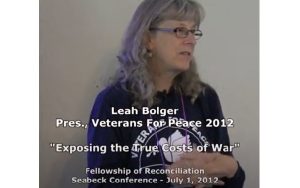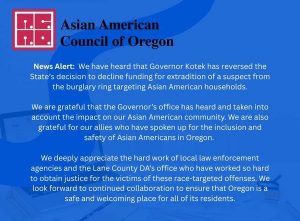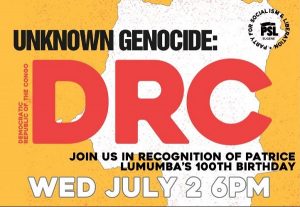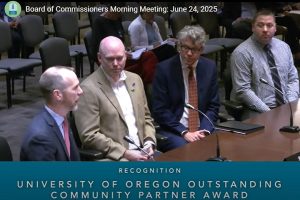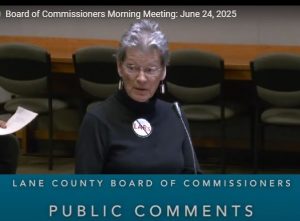Meet the candidate: Joe Meyer
15 min read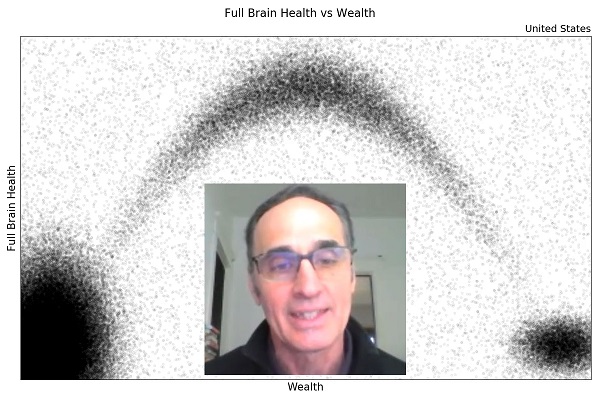
A neighborhood activist turned reporter and candidate for Portland city commissioner now sets his sights on the nation’s capital. Running in Oregon’s Third Congressional District, Joe Meyer.
Joe Meyer: I was an activist before I was a KBOO reporter. One of the first things I worked on was they were trying to take away our neighborhood swimming pool. I think 50 to 100 years ago, almost every school in Portland had a swimming pool in the basement. It was fundamental that every kid learned how to swim, and I thought that was great. We lived in the Buckman neighborhood two blocks away. I did lap swimming at lunch sometimes, so it kind of hit me personally.
[00:00:33] And, I really felt that the government wasn’t being honest. Somehow there was a movement to close the pool. It was a decision made somewhere else, maybe between Portland Public Schools and the government. And then they just kept on coming up with false reasons. And what really annoyed me is, You’re going to take away my pool, can you at least tell me the truth? So I felt disrespected. I felt like this isn’t really a democracy. This is a false democracy.
[00:00:58] That was one of the things, another one was housing. It just seemed certain developers were favored by City Hall for one reason or another. There were a few other issues, and that’s when I first walked into KBOO, probably 2010. And I started just writing so-called ‘readers’ that they would read out. And after six months or a year, I started doing interviews.
[00:01:17] I remember being surprised. I would call someone up and say, ‘I’m Joe Meyer. I’m a reporter from KBOO,‘ and they would believe me (laughs). So really, I wanted to see if that would make a difference in a way. And at the end of the day, maybe it didn’t so much. It gave me some satisfaction. I covered a lot of different stories.
[00:01:36] I think the first big one I did was the Water Bureau, and I think that’s just so typical of what’s going on in our society. Portland, as you may know, had the Bull Run water system. Fresh water ran downhill from the mountains into our open-air reservoirs, and that worked for over 100 years. No one ever got sick one time. And the kicker was, well, corporations can make some money off that. So how can they do that?
[00:02:01] A large corporation went to Washington and they rewrote the clean water policies so that all of a sudden we were in a violation of U.S. law because we don’t have a filtration plant. There was an outbreak of cryptosporidium, I think in Milwaukee (Wisconsin, 1993), that prompted this new law. And it had absolutely nothing to do with our water system. We don’t have the kind of cryptosporidium that makes you sick, but that didn’t matter. Somebody at one time found some cryptosporidium up there and from then on, it was a done deal.
[00:02:32] I reported on this and I remember talking to the head of the Water Bureau at the time, and he kept on giving just different excuses after excuses. And finally, those excuses ran around and bit him. I said, ‘Okay, we’ve got him now. He said one thing two years ago, and now we’re seeing exactly the opposite.’ And so I did a story on that. And the result was, well, a few people congratulated me on my reporting, but it had absolutely no effect on the outcome.
[00:03:00] And we’re still spending, I think, over $1 billion. We’re still doing work up in Bull Run, which was a pristine facility. And now we’re putting all kinds of mercury bulbs in there to do something that’s totally unnecessary. And our water bills will continue to go up.
[00:03:14] Another big story that I did early on was the Joint Terrorism Task Force. If you remember the ‘Christmas Tree Bomber,’ it was in 2009 here in Portland? Well, that was a real eye-opener for me. I think it’s been going around all over the country, so-called ‘entrapment cases’ where the FBI would go out, go in and find some kid who’s kind of down and out, and lead him through what could plausibly be considered in a court of law, a terrorism case.
[00:03:40] I covered the trial for KBOO and it became obvious right away that the FBI was grooming him since he was 18 and providing him with marijuana. He was just an innocent high school kid, wanted to fit in. He was an immigrant from Somalia, and he had a drug problem, basically, and the FBI thought this was an opportunity.
[00:04:01] They just dragged him around for a test bomb site and he was so stoned he could barely sit still. He could barely stay on task and they’re telling him to please pay attention and he wants another hit of weed.
[00:04:11] The court was a real kangaroo court in my opinion. The judge just seemed to be biased in the way he spoke to the prosecutor versus the way he spoke to the defense attorneys. The amount of information he let in was disparate, I think, and always in favor of the prosecutor. I really had the impression that there was a formula they were following and they’re following it for a reason. It works. It works.
[00:04:36] I think Mohamed (Osman Mohamud) was the only Black person in the whole courtroom. And to have a Portland jury unanimously convict him was a farce, in my mind. In fact, I think I would go so far as to say I was pretty convinced that the van he parked at Pioneer Square didn’t even have a bomb in it. It became clear to me that Mohamed thought he was doing a drug deal and he was parking that car to do a drug deal.
[00:04:59] He dialed the phone to so-called ‘detonate the bomb’ and say, ‘No one answered,’ you know, ‘What am I supposed to do? Am I supposed to dial again?’ And then the FBI rushed out of the van and arrested him. So it was a real eye-opener and made me think differently about the country I live in.
[00:05:14] When I was young, I thought all the solutions to our problems were technical. I studied physics, I have a PhD in physics. And, ‘Oh, we have too much air pollution.’ ‘Oh, well, I’ll just build a new catalyst that will solve everything.’ And as I got older, I realized the solutions are already there. And the problem is the way humans interact with each other.
[00:05:33] I was in the reporting business for about five years to 2014, and in the 2014 election, no one was running against Dan Saltzman, the city commissioner, and he was just blindly for the Joint Terrorism Task Force. He was blindly for anything a corporation wanted to do. And no one was running against him.
[00:05:50] So I threw my hat in the ring there and I got 10,000 votes, I was happy to say, and it was a challenge. I’m not really a talkative guy. When I was a kid, I had a bit of dyslexia. I had a speech impediment. So it’s not natural for me to go out and talk. I just couldn’t feel good about the ballot coming to my house with only the incumbent’s name on it. It just didn’t make sense.
[00:06:09] I enjoyed writing my speeches. I just read my speeches because I didn’t really want to speak off the cuff. I didn’t feel confident to do that. And every place I gave a talk, pretty much exactly one person would come up to me and say that they really appreciated it. And that made a difference for me. I think most people didn’t know what I was talking about or they weren’t interested because I wasn’t going to win anyway. However, one person, usually exactly one, came up and shook my hand and thanked me for my effort. And that made a big difference.
[00:06:36] I was working on the Joint Terrorism Task Force a lot, so I was able to talk about that and say the FBI is a racist institution, a criminal racist institution. And I don’t know how much traction that got, but that’s what I felt. And I was happy to be able to say that.
[00:06:52] Openness in government was another big theme that I had, because of my personal experience. Yes, they wanted to close our pool, and they had to make up a bunch of lists because they won’t tell us the truth.
[00:07:02] And these are things that I see continuing today. We have our government at every level, I think, playing us, rather than working for us or informing us. There’s a certain group of people who think they’re smarter than everyone else, and maybe in some measure they are. They are pretty smart. However, they lost all their humanity. They just lost their humanity and feel like they’re so smart, they have to do whatever they want and they have to bring people along with them.
[00:07:30] I was interested to read one of my favorite philosophers, Karl Popper, thought that that idea goes back to Plato. He calls Plato a proto-fascist. And people don’t like that because Plato is revered and he probably has a lot of good ideas. However, one of his ideas was: ‘The best among you shall rule.’ And I think people like Biden and especially maybe Blinken think that’s true. And once you think that, you really have license to do whatever you want. There’s no sense telling the truth to these low beings beneath you.
[00:07:57] And I hope that we’re at a place where we can make a turning point here, where people are just so sick of it, the Democratic and Republican parties. I call them ‘Fascist Red’ and ‘Fascist Blue.’ It’s something I can’t understand or something that’s difficult to take, and I don’t know what to do about it, I’m sick at heart, and that’s why I’m throwing my hat into the ring again with the Green Party.
[00:08:16] These aren’t my words, but it was Mario Savio, maybe almost 60 years ago, he said: ‘There comes a time when the operation of the machine becomes so odious, it makes you so sick at heart, that you can’t take part. You can’t even passively take part. You have to throw your body on the gears and the wheels of the machine until it stops.’ And that was the Vietnam War.
[00:08:36] So the emotional reason I’m running is ’cause I’m sick at heart and I can’t take part. I want to throw my body on the gears of the machine any way that I can. And the rational reason: Because I do believe in democracy. I think it’s the best form of government. And by that, I mean, it’s the form of government most suited to the human species.
[00:08:53] You know, gorillas and chimpanzees, closely related species, have a kind of winner-takes-all brute force policy. I believe we evolved differently. We evolved to live in an egalitarian society where everyone has some say in matters. And when we live in a society like today, where violence is prevalent, where even witnessing violence can make a human sick, that’s what PTSD is. If we were like gorillas or chimps, we wouldn’t have PTSD. We have PTSD. I think it means we’re living far from home.
[00:09:22] And my understanding of it, and I’m writing on this topic, a neuropolitical theory on Substack (it’s meyerja.substack.com) that there are these two vulnerabilities of the human species that we’re seeing grow into a catastrophe now. One is that power corrupts, not something that we all know, power corrupts. And the other one is that trauma debilitates and the problem in our society today is that excessive wealth is driving both of those processes.
[00:09:55] As political leaders, Joe Biden’s a perfect case. He’s been in power betting on war for 50 years. His prefrontal cortex is totally atrophied. He cannot even physiologically, he cannot care about a child in Gaza. He just is not, it’s not capable of doing that.
[00:10:10] I believe every member of the House voted for the last $100 billion war package. I think every member of the Democratic House voted for that for $60 billion for Ukraine, and what was it, $20 billion for destroying Gaza.
[00:10:22] There’s a few recent disconnects in my mind. This genocide is a disconnect. I just can’t, I just can’t believe it. There’s mass graves found and the spokesperson for the Department of State says, ‘Well, we’re going to ask Israel about that.’ It’s just makes me feel like I’m in a different reality.
[00:10:37] I think the first disconnect was when the Supreme Court handed the presidency to (George W.) Bush. I just couldn’t believe that happened. I just, I listened to the arguments. And I was sure that they were not going to do that and that they ruled in favor of Bush with the codicil: ‘Well, you can’t use this ruling in any future rulings,’ it’s like they knew they were cheating somehow. It didn’t make any sense to me. I was disconnected from reality. I’m sick, I’m sick in my heart.
[00:11:01] And homeless camps are rampant here. We have a half a million people homeless in the richest country in the history of the earth; 30% of Americans are housing-insecure. It’s not possible to participate in the democratic process when you’re housing-insecure, you can’t, you don’t have the time for it. You don’t have the effort for it. You have to have your nose to the grindstone.
[00:11:21] That’s all you can do. It’s these two human vulnerabilities. It’s no fault of ours. That’s how we evolved. We evolved to live in small, egalitarian groups. We’re so far from that. We have these two diseases of the human mind that collaborate to really threaten the species, I would say, by endless war, poverty, and of course, the environmental disaster. Neither party, Fascist Red or Fascist Blue, are doing anything about that. War is the greatest polluter of all. That’s our only solution.
[00:11:49] So the rational reason I’m choosing is to make a place on the ballot, the two-party system is totally, totally broken. And just like in 2014, when I ran for city commissioner, I would be more sick at heart if I received my ballot and those are my two choices.
[00:12:04] Democracy has to be about serving the people and our democracy is failing now because not enough people are able to participate in the process. So I think in order to give us a chance at life, liberty, and happiness, that’s the government’s job, we have to make sure people are taken care of here. We have to make sure we have a strong democracy. We can’t have a strong democracy when 30% of the people are housing-insecure. And the danger of that, how are we going to provide that? Because I think if you have too large of a government, that’s going to get corrupted. Power corrupts. Bureaucracy is perhaps one of the greatest dehumanizing evils there is.
[00:12:42] So I think the best idea for making sure everyone has the basics (without having a bloated government) is a universal basic income or negative income tax. This is an idea I hope will have wide support. It’s originally, I believe, a libertarian idea out of the University of Chicago, and it will shrink the government. Why do we have a Department of Fair Housing? Why do we have a Department of Labor? These aren’t helping us.
[00:13:09] What will help us is to have options, to have choices. And a choice can be, ‘Well, I’m not going to work because I can’t get a job that pays more than $10 an hour. I’ll just go to the library and make $10 an hour from the government and the corporations will be forced to increase the desirability of having a job.’ We’re the richest country on earth. It would eventually save money.
[00:13:33] For example, I mentioned the half a million homeless people in this country. We could save $10 billion a year simply by giving them a house. It’s much more expensive to have unhoused people than it is to have housed people because the cost of medical care, emergency services, police, fire showing up is much more expensive than housing.
[00:13:51] So I’d have to believe that homelessness is a policy in the United States. Homelessness is a policy to keep those people down and to keep the 30% of people who are housing-insecure scared. That’s why I call it Fascist Red and Fascist Blue. And that’s why I’m running Green.
[00:14:08] We have a shortage of real representation: Simply, the corporations have taken over. Nobody really can doubt that as far as I can tell. The military-industrial complex is maybe the worst of them. And it’s just part of the corporate takeover. Chris Hedges, one of my favorite hero reporters, says there’s been a coup in the United States. We lost. And it’s a tough pill to swallow and I don’t see how that’s false.
[00:14:32] I think things have to change quickly. And when things change quickly, you call it a revolution.
[00:14:37] And the good news is: Look at the universities, you know, look at the people coming out. It’s curious too that they’re the elite universities where it started. I’m not sure how I understand that, but it seems to be the truth, they’re really putting it on the line and the professors as well, they’re going out there and making a human shield around them.
[00:14:53] So I would say we’re going to have a revolution. And it’s either going to be violent or nonviolent. I hope by simply taking the House of Representatives, like Ralph Nader suggests: ‘Why is everybody complaining all the time? Just run for office.’ This makes so much sense to me. I don’t want to have a violent revolution. We need a revolution. We need a peaceful revolution.
[00:15:12] But I really am sick of begging my representative for simple basics. You know, I feel like my representative is not representing me. They’re representing their donors. I read that the average House member spends four hours a day on the phone raising money. That’s something that I will not do as a Green Party member.
[00:15:31] And you know, campaign finance reform: We’ve tried that a few times and it seems like it’s a very difficult thing to make a law that will work, because there’s always going to be a way around it and at the end of the day, maybe the Supreme Court will just quash it.
[00:15:44] So my greatest hope is to win without raising money, at least not taking donations of more than a few dollars from individuals. That’s, I think, the true campaign finance reform: Have the people educated enough so it’s not effective anymore. You can’t buy my vote anymore.
[00:16:00] And I hope to have a campaign based on social media, lawn signs. I want to have a lawn sign that says, ‘Ask me why I’m voting Green.’ We need to have people talking to each other about this. We need a way to stop relying on the sound bite of a commercial, rather trust in our neighbors.
[00:16:17] I hope to run a campaign that, if I win or lose, will still be better off somehow. We’ll have made a small step towards better democracy. We’ll get to know our neighbors. We’ll get to know some issues a little bit better. We’ll rely on each other rather than a corporation.
[00:16:33] My greatest hope for the Third U.S. District in Oregon: Always be a Green seat. I hope I can serve for one term, maybe two at the most. And then we want to have a way of expanding democracy, to try to expand Green democracy in Oregon. I would hope that the next primary there would be three or four well-qualified candidates, well-informed candidates who are ready to go. And from here, I think we can turn the whole state Green and just move forward from there.
[00:17:03] It’s a long shot. It’s the only shot we’ve got.
[00:17:05] John Q: Joe Meyer, seeking the Greens’ nomination to run for Oregon’s Third Congressional District. You can contact him through his blog, at meyerja.substack.com.
